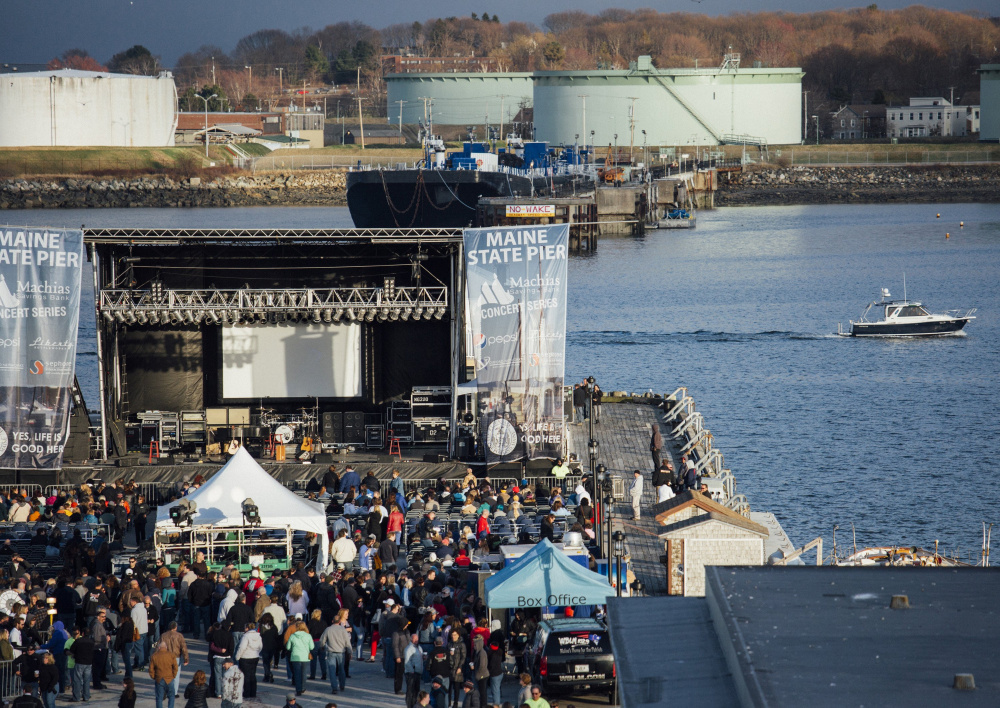It’s been nearly a decade since the battle over the Maine State Pier divided the city of Portland.
The merits of two rival proposals for an office and hotel complex on the city-owned property were argued passionately in every possible public forum, and resulted in incumbent city councilors being turned out of office in two successive elections. Anger over the city’s failure to successfully close the deal led to the creation of a charter commission, which ended up changing the city’s form of government, adding a full-time elected mayor to lead the council and avoid another such debacle.
In the end, neither project was built, and you can still start an argument if you offer an opinion on what went wrong.
So we are impressed that the current City Council and Mayor Ethan Strimling have put development of the pier on their agenda for 2016. We hope that they will study the events of 2007 and 2008 and learn some lessons on how to proceed.
This time it’s important to understand the reason that this public asset is being considered for development. Last time, the decision to issue requests for proposals was driven by the belief that the 88-year-old pier needed to be rebuilt at a cost of as much as $26 million.
Paying the cost of the repairs dictated a dense development envisioned in both proposals, but after the deals fell apart, the city revised its estimate, finding that the pier could be kept in good condition for a fraction of the cost if it was used as intended – as a docking facility instead of a platform for a building.
This time around, city officials are looking at the Maine State Pier strictly as an economic development opportunity, free from the fear that the structure would fall into the ocean without a significant influx of cash.
The pier can be a catalyst of economic development without being the site of buildings itself. The Maine State Pier gives the public an opportunity to get very close to the water and see the workings of the harbor. With considerable private land for potential development to the east of the pier, stretching from a lot near the Ocean Gateway facility all the way to the edge of the Portland Co. Property, such a public amenity could be more valuable than another hotel or office building.
This time around, the council is doing the right thing, by seeking public input before putting together a proposal. As Portlanders learned in the last Maine State Pier controversy – and in the Congress Square Park controversy in 2014 – opinions harden as soon as drawings of a proposed development hit the public. It pays to get public buy-in first before any plans take shape.
Send questions/comments to the editors.



Success. Please wait for the page to reload. If the page does not reload within 5 seconds, please refresh the page.
Enter your email and password to access comments.
Hi, to comment on stories you must . This profile is in addition to your subscription and website login.
Already have a commenting profile? .
Invalid username/password.
Please check your email to confirm and complete your registration.
Only subscribers are eligible to post comments. Please subscribe or login first for digital access. Here’s why.
Use the form below to reset your password. When you've submitted your account email, we will send an email with a reset code.